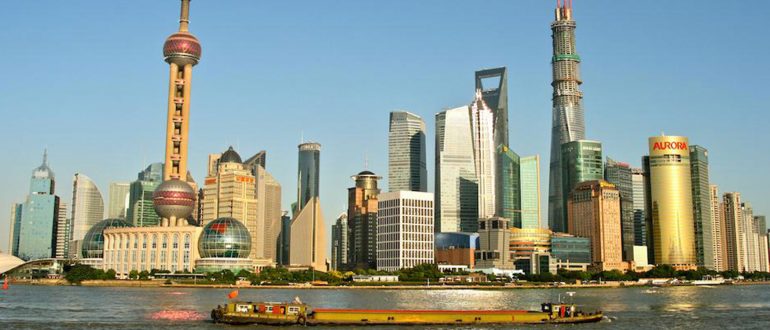
China’s G20 Presidency: Three Avenues of Collaboration with Germany
Since December 2015, China holds the presidency of the G20, which will cumulate in the Hangzhou summit in September. At the recent G20 summit in Antalya, President Xi Jinping highlighted China’s G20 presidency agenda is aimed at an “Innovative, Invigorated, Interconnected and Inclusive World Economy”.
Although the G20 has become a premier forum for international economic cooperation and played a significant role in tackling the international financial crisis of 2007/8, it is now at a crossroads. The global economy is currently recording a major slowdown and risks falling into a period of stagnation. This poses a major challenge to international economic cooperation and the role of the G20. Expectations for China’s G20 presidency are therefore high. Yet, China alone will not be able to address the threat of a new economic crisis. Following China, Germany will assume the presidency of the G20 in 2017. Against this background, this article argues that China needs to closely collaboration with Germany in order to guarantee the success of its G20 presidency. In particular, Germany can contribute in three important ways to the achievement of China’s presidency and the overall success of the G20.
First, by giving priority to investment and infrastructures, Germany can support China’s efforts in establishing an “Invigorated and Interconnected World Economy”. While China needs to maintain its high levels of investment to foster inclusive and interconnected economic development, Germany should increase its own investment efforts. A surge in German investments would not only be beneficial for the modernisation of Germany’s increasingly out-dated infrastructure, but it would also be a stimulus for the global economy. As Europe’s largest economy, Germany has a major responsibility in getting Europe back on a growth path by supporting the Investment Plan for Europe (so-called “Juncker Plan”) and the European Fund for Strategic Investments (EFSI). Like Europe, China currently witnesses an economic downturn. Following years as the economic engine of the G20, China is now faced with an annual growth rate of around 6.5 percent. In order to respond to this situation of “New Normal”, the Chinese leadership has set up the ambitious “New Silk Road Initiative”. This investment strategy will not only foster economic integration between China and the rest of Eurasia, but also translate into major infrastructure projects in the region. These projects will be financed by the Silk Road Fund, as well as by the newly established Asian Infrastructure Investment Bank (AIIB). China was the first non-EU country to support the Juncker Plan and recently announced that it will support the European Fund for Strategic Investments through its Silk Road Fund. Moreover, China is in the process of joining the European Bank for Reconstruction and Development (EBRD). At the same time, Germany and other EU member states have become founding members of the AIIB.
Second, Germany can contribute to China’s objective of establishing an “Inclusive World Economy” by fostering sustainable global development and giving a greater say to developing countries in shaping global economic governance. Both Germany and China have been involved in the COP21 Climate Conference held in Paris last December. The priority attributed by the Chinese government to sustainable development, has been further underlined by the participation of the Chinese Vice Premier Zhang Gaoli in the Signatory Ceremony of the Paris Agreement on 22 April 2016 at the UN Headquarters in New York. It therefore comes as no surprise that in the framework of its G20 presidency, China proposed to adopt a Statement on Climate Change. Together with China, Germany can help the G20 to take the lead in promoting the implementation of the Paris Agreement.
In addition to putting emphasis on the issue of sustainable development, China’s G20 presidency is also an opportunity to give further priority to the interests of developing countries. China has acted as an advocate for expanding the G20 agenda to include development cooperation. Yet, there are risks that the current economic downturn will disregard the importance of developing countries in global economic governance. Together with China, Germany should therefore support the G20’s role as a gateway to developing economies, in particular in Africa. Germany and China should reach out to South Africa to support the G20 Development Working Group as an impartial multilateral development platform. As a key supporter of the Sustainable Development Goals (SDGs), Germany could also build a bridge between the G20 and the UN 2030 Agenda for Sustainable Development. Germany is not only one of the ten UN member states to have volunteered to participate in the first National Reviews of implementation of the 2030 Agenda for Sustainable Development, but it also hosts a new UNSSC Knowledge Centre for Sustainable Development in Bonn.
Finally, China and Germany could work together for an “Innovative World Economy”. In 2014, Germany and China launched a unique partnership for innovation. The Sino-German innovation partnership represents the first example of collaboration between an industrial country and a Middle Income Country in the area of innovation. In this context, the German Ministry of Education and Research (BMBF) launched in December 2015 a detailed innovation strategy with China. Germany’s innovation strategy with China could serve as a foundation for promoting further innovation cooperation in research, science and education in the framework of the G20.
To conclude, China has formulated ambitious policy priorities to guide its G20 presidency and tackle the current challenges of the world economy. Thus, the Chinese leadership has shown its determination to respond to the risk of a global economic crisis through increased international collaboration. Yet, China can only guarantee the success of its G20 presidency by joining forces with Germany. Only by setting a positive example of effective international economic cooperation, China and Germany can uphold the G20’s position and assure that it will remain a relevant actor in global economic governance.
This article is part of IFAIR’s cooperation with the Diplomatic Magazine and was published there first in the issue 03/2016.
